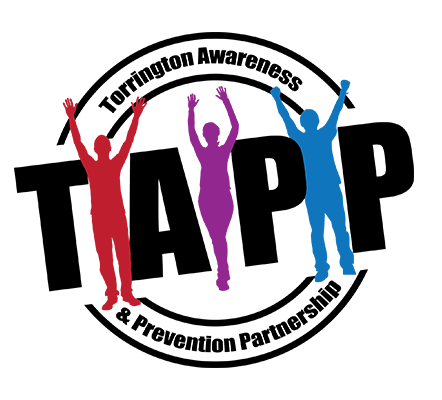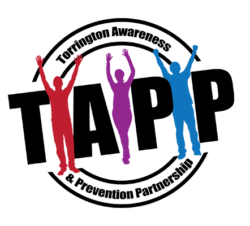Cannabis / Marijuana

T.A.P.P. works diligently to provide Torrington's youth with the facts through community outreach, events and programs.
Marijuana Risks
Marijuana is one of the most commonly used substance in the U.S. and its use is growing. Marijuana use among all adult age groups, both sexes, and pregnant women is going up. At the same time, the perception of how harmful marijuana use can be is declining. Increasingly, young people today do not consider marijuana use a risky behavior.
But there are real risks for people who use marijuana, especially youth and young adults, and women who are pregnant or nursing. Today’s marijuana is stronger than ever before. People can and do become addicted to marijuana.
Approximately 1 in 10 people who use marijuana will become addicted. When they start before age 18, the rate of addiction rises to 1 in 6.
Marijuana use can have negative and long-term effects:
Brain health: Marijuana can cause permanent IQ loss of as much as 8 points when people start using it at a young age. These IQ points do not come back, even after quitting marijuana.
Mental health: Studies link marijuana use to depression, anxiety, suicide planning, and psychotic episodes. It is not known, however, if marijuana use is the cause of these conditions.
Athletic Performance: Research shows that marijuana affects timing, movement, and coordination, which can harm athletic performance.
Driving: People who drive under the influence of marijuana can experience dangerous effects: slower reactions, lane weaving, decreased coordination, and difficulty reacting to signals and sounds on the road.
Baby’s health and development: Marijuana use during pregnancy may cause fetal growth restriction, premature birth, stillbirth, and problems with brain development, resulting in hyperactivity and poor cognitive function. Tetrahydrocannabinol (THC) and other chemicals from marijuana can also be passed from a mother to her baby through breast milk, further impacting a child’s healthy development.
Daily life: Using marijuana can affect performance and how well people do in life. Research shows that people who use marijuana are more likely to have relationship problems, worse educational outcomes, lower career achievement, and reduced life satisfaction.
Marijuana Long Term Effects
Marijuana is becoming more available and stronger than ever. Use in the U.S. is on the rise. In Virtual Assistant, three friends get an unexpected warning from an eager virtual assistant about one of the many marijuana health risks. To learn more about marijuana, visit samhsa.gov/marijuana or call SAMHSA’s National Helpline at 1-800-662-HELP (4357) for 24/7 free and confidential information and treatment referral.
THE ADOLESCENT BRAIN IS VULNERABLE
The young brain is still developing, and is extremely sensitive to the effects of addictive substances. Not only are young brains at a greater risk of developing an addiction, an addiction to one substance can further increase the risk of becoming addicted to other substances. World Science Festival published a fantastic clip discussing the ability for nicotine to prime the brain for further addictions.
Substance Use & Addiction
Substance abuse and addiction are very complex and multi-faceted issues that communities across the country are struggling to deal with. One thing we know is that intentional, community focused approaches to substance abuse prevention can be extremely effective.
NATIONAL TRENDS
As a requirement for the Drug-Free Communities grant, our coalition has selected two priority substances to address within our community. These substances have been selected based on the level of use within Torrington, as well their impact on the health and well-being of youth and the community at large.By selecting these priority substances, we are by no means neglecting other problem substances – we are merely identifying these issues as being central to our SPF approach.
The Complexity of Addiction: There are a large number of factors that can lead to addiction. Check out the video published through Khan Academy for an interesting discussion of some of the risk factors.


TAPP is a community coalition whose mission is to promote healthy life choices through collaboration, education, support and training. We engage and mobilize youth, parents and community partners to prevent substance misuse, foster emotional health, and maintain a safe and healthy community.
58 High Street, Torrington, CT 06790
(959) 799-1445
joshua.licursi@mccallbhn.org


